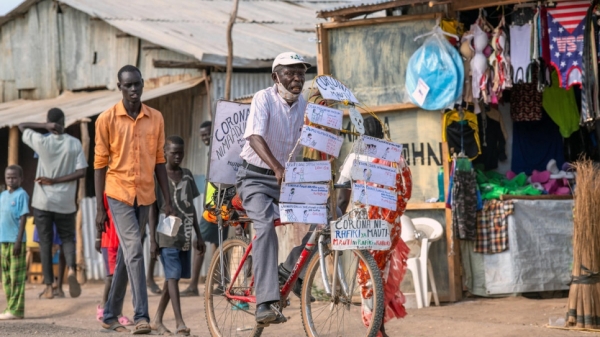The World’s Refugee Day falls every year on June 20 since 2001, when it was held globally for the first time on the 50th anniversary of the Geneva Convention (1951). Being dedicated to refugees, the day represents an occasion to raise awareness about the millions of displaced people worldwide. This year, even more so, international campaigns urged for leaving no one behind as we all find ourselves in the midst of a global health crisis.
Since the outbreak of the COVID-19, lockdown and other preventing measures exacerbated the struggles of refugees’, asylum seekers’ and internally displaced persons’ (IDPs) communities for making ends meet. In particular, the lack of jobs and access to information as well as the impossibility of relying on informal economies for income streams mostly affected the global population already living in conditions of vulnerability. A recent research conducted by the Red Cross and Red Crescent in Turkey, shows that 70 percent of the people interviewed have lost their jobs due to the pandemic. Despite governments’ slogan ‘we are all on the same boat’, the socio-economic impact of the new coronavirus has been far more severe on displaced people, especially in countries of the so-called Global South.
But, in these times of crisis, there were also many ordinary stories speaking of community-based solidarity and resilience among refugees and host communities. As Amnesty International reports, refugees themselves took responsibility and played a bigger role for supporting their communities when formal and informal activities were shut down due to restrictions in countries such as Kenya and Uganda. For instance, two refugee-led initiatives called KINGUTSI and YARID, operating in Nairobi and Kampala respectively, have been extremely valuable in the support of vulnerable households by distributing food and non-food items. Indeed, on the 2020 World’s Refugee Day, the United Nations Refugee Agency (UNHCR) commended the great contributions of the people with refugee-background who helped battling COVID-19 inside hospitals and settlements, producing protective masks, distributing food, promoting online education and informing people about health measures. As the UN High Commissioner for Refugees, Filippo Grandi, reminded “Whoever you are. No matter where you come from. Every one of us can make a difference. Every action truly counts”.
To read more, please visit:
https://www.unhcr.org/world-refugee-day.html
https://www.unhcr.org/news/stories/2020/6/5eeb78b84.html
https://reliefweb.int/report/world/world-refugee-day-2020-every-action-counts
Author: Rossella Fadda







